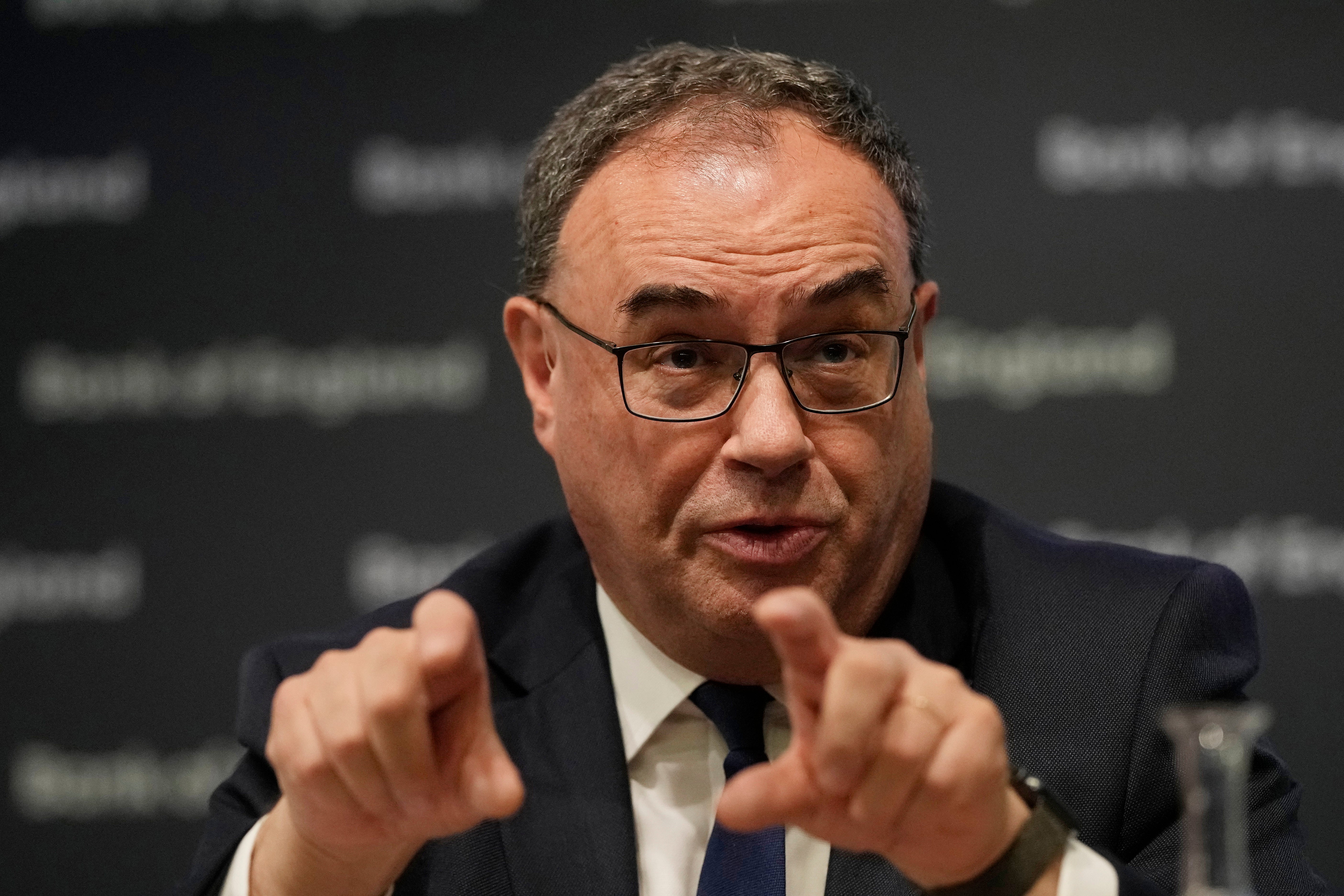What is inflation and what is its current rate in the UK and Europe?
Slowdown in price rises comes as somewhat of a relief to families struggling amidst cost of living crisis
The Bank of England (BoE) defines inflation simply as a term used by economists to “describe the increase in prices over time”.
Rising costs of goods and services on the UK high street indicate that the value of the British pound is in decline, which in turn means a reduction in consumers’ purchasing power and therefore their quality of life, as they are discouraged from spending more than they can afford.
This in turn eats into national economic growth.
“A healthy economy needs to have a low and stable rate of inflation,” the central bank explains. “The government sets a target for how much prices overall should go up each year in the UK. That target is 2 per cent. It’s the Bank of England’s job to keep inflation at that target.
“A little bit of inflation is helpful. But high and unstable rates of inflation can be harmful. If prices are unpredictable, it is difficult for people to plan how much they can spend, save or invest.
“In extreme cases, high and volatile inflation can cause an economy to collapse. Zimbabwe is a good example. It experienced this in 2007-2009 when the price level increased by around 80 billion per cent in a single month. As a result, people simply refused to use Zimbabwean banknotes and the economy ground to a halt.”
The BoE sets monetary policy to exert control and prevent such situations from arising, primarily through interest rates.
“Higher interest rates make it more expensive for people to borrow money and encourage them to save. That means that overall, they will tend to spend less,” the bank continues.
“If people on the whole spend less on goods and services, prices will tend to rise more slowly. That lowers the rate of inflation.”

In Britain, inflation is measured monthly by the Office for National Statistics (ONS), which checks the price of 700 typical goods and services that UK consumers regularly spend money on, from bread and milk to cars and foreign holidays.
The total price of a “basket” of such items is calculated to give us the Consumer Price Index (CPI), which is compared to its equivalent a year earlier to reveal how much the rate of inflation has risen over the past 12 months.
In its most recent announcement on 16 August, the ONS revealed that Consumer Prices Index (CPI) inflation stood at 6.8 per cent for July, down from 7.9 per cent in June.
The slowdown in price rises will come as somewhat of a relief to families struggling amidst the cost of living crisis.
From the beginning of July, the average price for each unit of electricity that someone uses was slashed to 30p per unit, while gas prices fell to 8p per unit, meaning the average annual energy bill for a household dropped to £2,074 from the capped rate of £2,500. Food and core goods inflation have also both slowed, according to the latest industry survey data.
“Inflation slowed markedly for the second consecutive month, driven by falls in the price of gas and electricity as the reduction in the energy price cap came into effect,” ONS deputy director of prices Matthew Corder said.
“Although remaining high, food price inflation has also eased again, particularly for milk, bread and cereal.
“Core inflation was unchanged in July, with the falling cost of goods offset by higher service prices.”
Treasury minister John Glen said the fall in inflation to 6.8 per cent meant the government was on course to return to the target level of inflation by 2025.
He told Sky News: “The Bank of England themselves think that we are on course to get to 5 per cent by the end of the year, and then get to 3 per cent by this time next year. We are on course then to get to the 2 per cent target by 2025.
“But as I say this isn’t a straight line process, there are lots of factors that go into the inflation figures and that is why the government, working very closely with the Bank of England, are very determined by the decisions we make around public spending, around pay settlements, around not allowing more expenditure to be made, to keep focused on this target.
“Getting inflation down is the most important thing the government can do to lay the foundations for enduring and strong growth.”
Prime minister Rishi Sunak said the fall in Consumer Prices Index inflation showed “the plan is working”.
“As prime minister, I am determined to build a better economy and a better country for you, your children and your grandchildren,” he said.
“That starts with tackling inflation. And the news this morning shows that the plan is working.
“If we stick to the plan I’ve set out, we’ll get it done.”
Additional reporting from agencies
Join our commenting forum
Join thought-provoking conversations, follow other Independent readers and see their replies
Comments
Bookmark popover
Removed from bookmarks